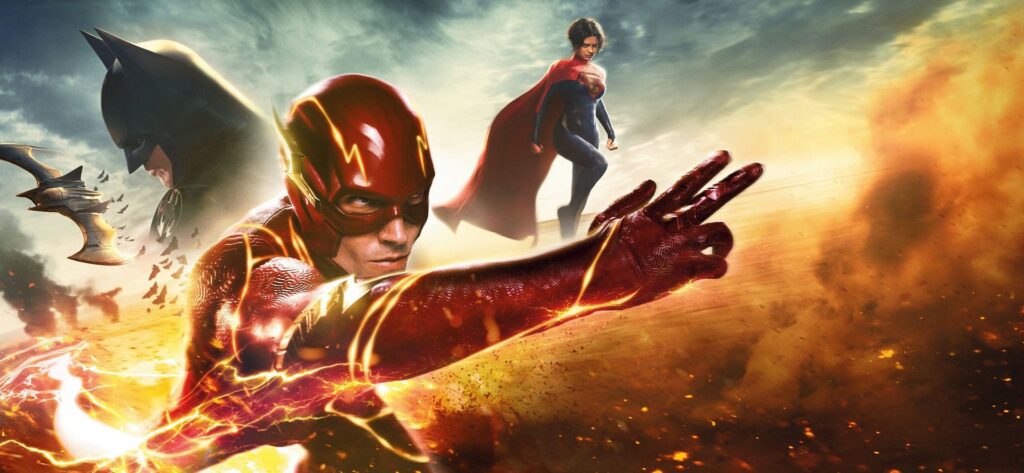Ever watched a superhero movie and felt an uncanny sense of déjà vu? That’s the feeling many of us may experience with DC’s latest venture, The Flash. As if stuck in an infinite narrative loop, our beloved superheroes are continuously repackaged and retold with only slight variations.
This phenomenon reflects a broader evolution in the superhero genre, encapsulated by the Marvel Cinematic Universe and its competitor, the DC Extended Universe (backed by Warner Bros), as they journey into the concept of multiverses.
Delving into the multiverse feels like a silent confession of the exhaustion within the traditional superhero narrative. It serves as a sanctuary where creators can toy with existing conventions, breathe new life into old stories, and pay homage to past iterations — all in the name of novelty.
However, the danger lurks in the shadows; it might be an elaborate mechanism to rehash old ideas instead of innovating new ones.
Disclaimer: The upcoming article may reveal crucial plot details from The Flash.
The Flash and DC’s Multiverse adventure: Fast and furiously familiar
The intricacies of the multiverse concept are unfolded in DC’s latest project, The Flash, a film beleaguered by troubled production and a lead actor, Ezra Miller, steeped in controversy.
As the off-screen saga unfolded, Warner Bros revealed an ambitious plan to completely reinvent their superhero roster, entrusting the task to the rebellious yet brilliant mind of James Gunn, best known for his work on Marvel’s Guardians of the Galaxy.
Despite the promises of the multiverse’s novelty, the movie remains grounded in the stark reality that its main character is a man in a red suit with extraordinary speed.
The alter-ego of this superhero, Barry Allen, finds himself stuck in a mundane day job, eating copious amounts of junk food to sustain his fast metabolism and dutifully fulfilling his superhero obligations, albeit devoid of any evident joy.
Barry’s character is painted as a snarky, world-weary cynic, embodying a character reminiscent of a prime John Cusack infused with a sprinkle of David Sedaris. His story, marred by the tragic murder of his mother and the wrongful imprisonment of his father, forms a somber narrative undercurrent, a far cry from the conventional jovial tone of superhero action films.
The plot takes a notable turn when Barry harnesses his speed to rewrite his tragic past, plunging him into a parallel multiverse. His exploits in this alternate universe are spent mainly interacting with a more relaxed, younger version of himself.
A fascinating twist in the multiverse saga comes in the form of Michael Keaton’s Batman, a veteran superhero whose layered portrayal infuses the film with a complexity and depth it struggles to achieve otherwise. His appearance and brief guest spots offer a nostalgic throwback to the genre’s past, reinforcing the movie’s self-referential narrative.
Yet, an overarching question lingers: Is The Flash a conscious metaphor for Hollywood’s incessant recycling of old material and Warner’s persistent yet unfulfilled attempts to compete with Marvel’s universe?
The film’s cyclic attempts to rectify the universe provoke a sense of déjà vu, leaving one to ponder whether this repetition, under James Gunn’s stewardship, will chart a different course. Despite its inherent repetitiveness and off-screen controversies, the film strikes an intriguing balance between thrilling action and emotional depth.
By delving into Barry’s grief over his mother’s death, the film offers a believable motive for his time-travel endeavors and introduces a sentimental component that distinguishes it from its superhero peers.
While offering a potential respite from the creativity bottleneck in superhero narratives, the multiverse also risks becoming a well-worn path, serving up rehashed stories with a new aesthetic.
As The Flash races into cinemas, the future will reveal if this multiverse gamble will catalyze a fresh wave of superhero storytelling or merely repackage tried and tested narratives.
The Flash is now showing in theaters.
Rating: 3.5/5


